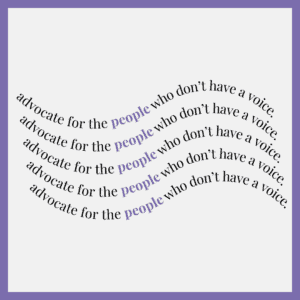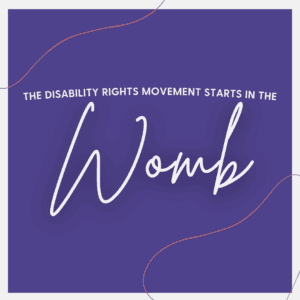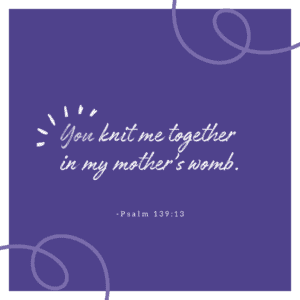The Disability Rights Movement is a civil rights movement advocating for those with disabilities to have equal rights. This movement is focused on breaking down barriers that stand in the way of people with disabilities having equal rights. Organizations advocating for people with disabilities have existed since the 1800s, but the movement really gained traction in the 1900s, when the League of the Physically Handicapped was formed to fight for employment rights during the great depression. Since then, several notable laws have been passed that made great progress for this movement (American with Disabilities Act, Telecommunications Act, Fair Housing Act, Voting Accessibility for the Elderly and Handicapped Act, etc.). However, there is still work to be done.
When it comes to advocating for people with disabilities, it can be hard to know where to start. For those of us who don’t have family members or people close to us with disabilities, it can be hard to understand exactly what people with disabilities go through, and how we can be of help. Here are several things we can do as individuals to advocate for people with disabilities in our communities.

A great place to start is by taking the initiative to learn more about specific disabilities.1 in 4 Adults in the US have some type of disability. Having some knowledge of what life looks like for people with various disabilities can better equip us to understand what they go through, what they need, and how we can best help them.
Additional resources
Everyone wants to be listened to. Actively listening to someone tells them that they’re important, they matter, and they have value. Active listening means engaging in conversation through nonverbal communication such as eye contact and head nods, and asking follow-up questions.
Accessibility may not be something we think about often if we don’t use a wheelchair every day. However, for someone who does use a wheelchair, accessibility is a very important detail that impacts their everyday life. Over the last several decades, great progress has been made in ensuring that places are accessible for all people. However, being mindful of accessibility and notifying the right people when a place isn’t accessible can make a big difference for someone.
Individualism and autonomy are important pieces of being your own person. When advocating for people with disabilities, it’s important to make sure we aren’t intruding on their autonomy. As long as safety is not a concern, supporting decisions and the direction that people with disabilities take is supporting their sense of autonomy. Sometimes waiting until we are asked for help can be the most helpful thing of all.
A great place to get started is by seeking volunteer opportunities. Getting connected with a local nonprofit or organization that advocates for people with disabilities is a great way to learn more and start making an impact.
An important piece of the Disability Rights Movement that is not often brought into the conversation is a basic right that is still unprotected. A person’s right to life.
Currently, in the United States, only 8 states prohibit or put limitations on abortions when the baby may have a genetic anomaly. Considering the states that have banned abortion, this still means that less than half of the states that make up our nation have had the courage to say that terminating someone’s life because they are different is unethical. This civil rights movement has been around for over a century, yet the greatest and most basic human right is still being denied.

The disability rights movement starts in the womb. Terminating someone’s life on the basis of sex, race, or genetic abnormalities is discrimination, and is taking away a person’s basic human rights. Someone’s genetic makeup does not change the value of their life. If we want to truly advocate for those with disabilities, we need to start by advocating for the people who do not have a voice.
Psalm 139:13-14a says, “For you created my inmost being; you knit me together in my mother’s womb. I praise you because I am fearfully and wonderfully made”. The Lord has created every life with intention. We are in no place of authority as humans to say otherwise. Ending a human life, no matter how we justify it, is not something we have the right to do.

Advocating for anyone really comes down to the simple act of loving people the way Jesus loved us, and seeing people through His eyes. Jesus died for all people. Our Father gave life to all people. Equality starts by understanding that every person is a beloved child of God. Everyone is given a life that was handcrafted and designed by God; a life that should be valued and protected as something Holy.
The post Disability Rights Movement appeared first on Focus on the Family.
Continue reading...
Advocating Tips
When it comes to advocating for people with disabilities, it can be hard to know where to start. For those of us who don’t have family members or people close to us with disabilities, it can be hard to understand exactly what people with disabilities go through, and how we can be of help. Here are several things we can do as individuals to advocate for people with disabilities in our communities.

A great place to start is by taking the initiative to learn more about specific disabilities.1 in 4 Adults in the US have some type of disability. Having some knowledge of what life looks like for people with various disabilities can better equip us to understand what they go through, what they need, and how we can best help them.
Additional resources
Actively Listening
Everyone wants to be listened to. Actively listening to someone tells them that they’re important, they matter, and they have value. Active listening means engaging in conversation through nonverbal communication such as eye contact and head nods, and asking follow-up questions.
Promoting Accessibility In Your Local Community
Accessibility may not be something we think about often if we don’t use a wheelchair every day. However, for someone who does use a wheelchair, accessibility is a very important detail that impacts their everyday life. Over the last several decades, great progress has been made in ensuring that places are accessible for all people. However, being mindful of accessibility and notifying the right people when a place isn’t accessible can make a big difference for someone.
Supporting Autonomy and Self-direction
Individualism and autonomy are important pieces of being your own person. When advocating for people with disabilities, it’s important to make sure we aren’t intruding on their autonomy. As long as safety is not a concern, supporting decisions and the direction that people with disabilities take is supporting their sense of autonomy. Sometimes waiting until we are asked for help can be the most helpful thing of all.
Seeking Opportunities To Volunteer
A great place to get started is by seeking volunteer opportunities. Getting connected with a local nonprofit or organization that advocates for people with disabilities is a great way to learn more and start making an impact.
An important piece of the Disability Rights Movement that is not often brought into the conversation is a basic right that is still unprotected. A person’s right to life.
Currently, in the United States, only 8 states prohibit or put limitations on abortions when the baby may have a genetic anomaly. Considering the states that have banned abortion, this still means that less than half of the states that make up our nation have had the courage to say that terminating someone’s life because they are different is unethical. This civil rights movement has been around for over a century, yet the greatest and most basic human right is still being denied.
Life Is A Basic Human Right

The disability rights movement starts in the womb. Terminating someone’s life on the basis of sex, race, or genetic abnormalities is discrimination, and is taking away a person’s basic human rights. Someone’s genetic makeup does not change the value of their life. If we want to truly advocate for those with disabilities, we need to start by advocating for the people who do not have a voice.
Psalm 139:13-14a says, “For you created my inmost being; you knit me together in my mother’s womb. I praise you because I am fearfully and wonderfully made”. The Lord has created every life with intention. We are in no place of authority as humans to say otherwise. Ending a human life, no matter how we justify it, is not something we have the right to do.

Advocating for anyone really comes down to the simple act of loving people the way Jesus loved us, and seeing people through His eyes. Jesus died for all people. Our Father gave life to all people. Equality starts by understanding that every person is a beloved child of God. Everyone is given a life that was handcrafted and designed by God; a life that should be valued and protected as something Holy.
The post Disability Rights Movement appeared first on Focus on the Family.
Continue reading...





